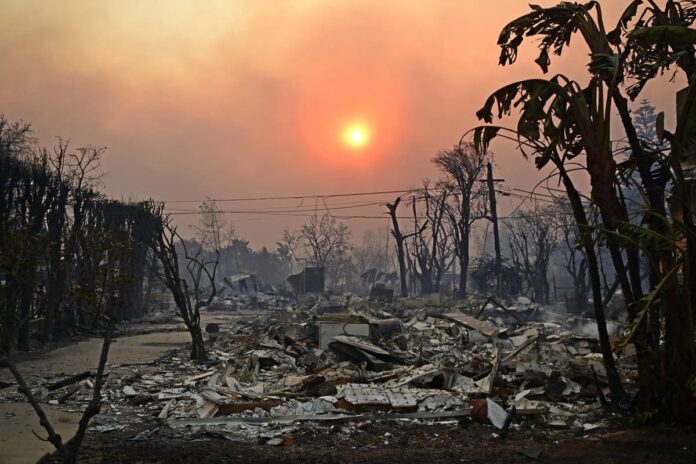## Viral Outrage Leads to Airbnb Victory: When Public Pressure Fuels a Refund
Imagine planning your dream getaway, booking a cozy Airbnb nestled in a picturesque location, only to have your plans upended by an unexpected wildfire. That’s exactly what happened to one unlucky guest whose story went viral, sparking a firestorm of online debate about Airbnb’s responsibility in such situations. But this isn’t just another tale of travel woes. It’s a story about the power of public pressure and how a collective voice can sometimes lead to a satisfying resolution. Read on to see how a viral complaint ultimately secured a full refund for the guest and ignited a conversation about accountability in the sharing economy.
Airbnb’s Refund Policy Under Fire: A Case Study from the Palisades Wildfires
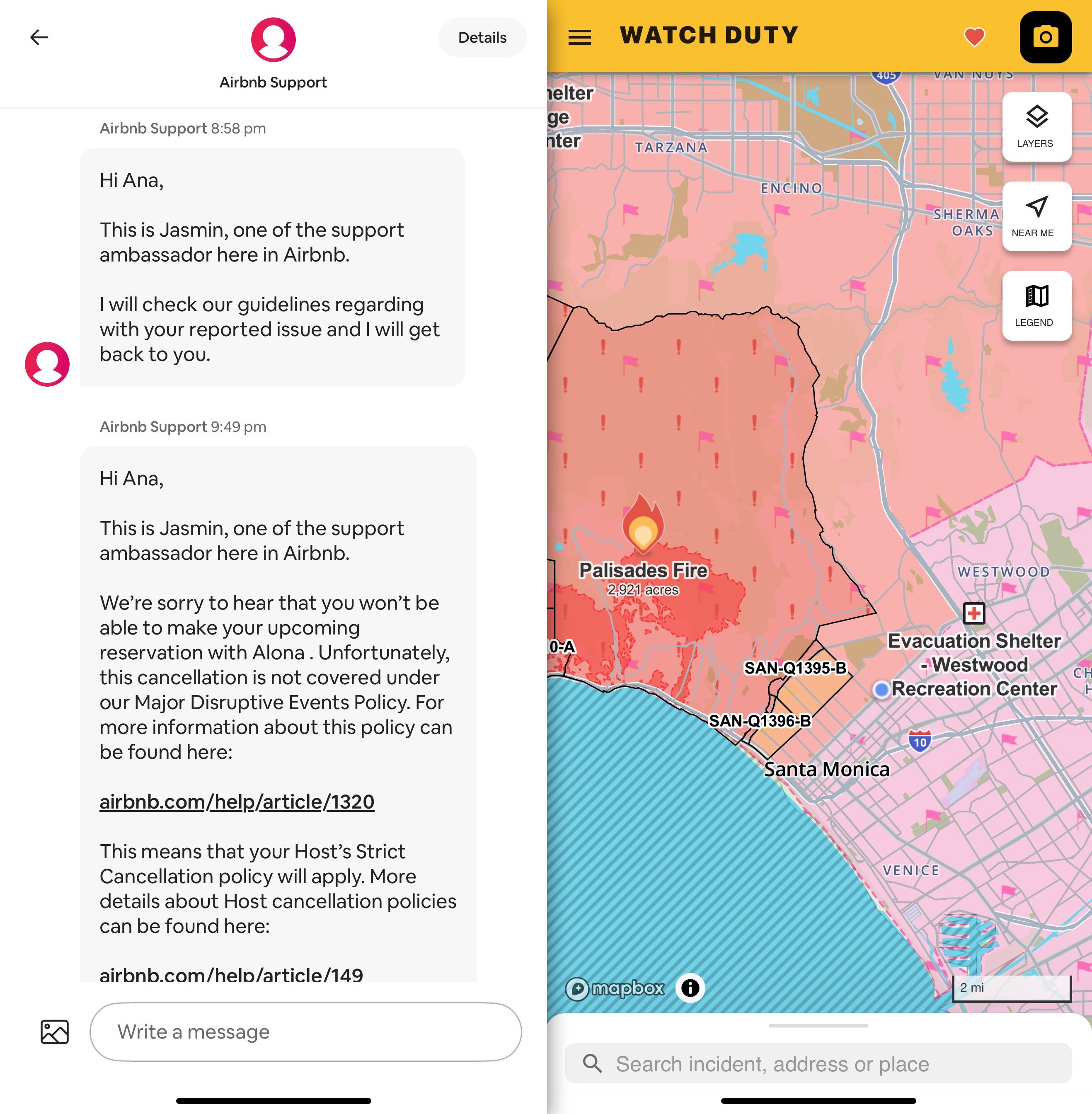
A Viral Complaint Sparks Change
A recent incident involving Airbnb guest Ana Mostarac ignited a debate surrounding the platform’s policy response to “major disruptive events” like the devastating Palisades wildfires in Los Angeles. Mostarac, who booked an Airbnb near the affected area, took to X (formerly Twitter) to express her frustration when Airbnb denied her rebooking request under its Major Disruptive Events Policy. The screenshot of her conversation with an Airbnb “support ambassador,” stating that her situation “is not covered under our Major Disruptive Events Policy,” went viral, amassing 9.7 million views and sparking a wave of public criticism.
According to Mostarac, she contacted Airbnb seeking assistance in rebooking her accommodation to a safer location away from the escalating wildfires. She emphasized that she wasn’t demanding a refund but simply needed to find alternative lodging due to the rapidly changing and dangerous situation. She stated, “To clarify, I called Airbnb to request help with rebooking accommodations farther from the danger zone… As always, their policies failed to account for context. The fires keep getting worse, and unfortunately, many others are probably stuck explaining bushfires to someone in another country right about now.”
Airbnb’s Major Disruptive Events Policy: Clarity and Context
Airbnb’s Major Disruptive Events Policy, while seemingly comprehensive, has come under scrutiny for its limitations in real-world scenarios. The policy states that guests are covered if certain events affect their reservation location, occur after the time of booking, and prevent or legally prohibit the completion of a future or ongoing reservation. Covered events include public health emergencies and epidemics, government travel restrictions, military actions and other hostilities, large-scale outages of essential utilities, and natural disasters.
Understanding the Policy: Breaking Down the Covered Events
Airbnb’s policy aims to provide a safety net for guests whose trips are disrupted by unforeseen circumstances beyond their control. The listed events encompass a wide range of situations that can significantly impact travel plans. However, the policy’s effectiveness hinges on its interpretation and application by Airbnb’s support team.
Limitations of the Policy: Where It Falls Short in Real-World Scenarios
The case of Ana Mostarac highlights a potential gap in Airbnb’s policy. While wildfires are explicitly mentioned as a covered event, the policy’s emphasis on preventing or legally prohibiting completion of a reservation might not adequately address situations where the threat is imminent but not yet at a level requiring legal restrictions or evacuations.
Potential for Improvement: Suggestions for Enhanced Policy Coverage
Morningpicker suggests that Airbnb consider refining its Major Disruptive Events Policy to provide more flexibility and clarity in situations like the Palisades wildfires. This could involve:
- Expanding the definition of “prevention” to encompass imminent threats and potential dangers, allowing for proactive rebooking options even before legal restrictions or evacuations are in place.
- Providing clear guidelines for situations where guests are seeking alternative accommodation within a specific radius or region affected by a disruptive event, ensuring they are not penalized for seeking safety.
- Stay informed: Monitor weather forecasts and news updates for potential disruptions in your travel destination.
- Review Airbnb’s Major Disruptive Events Policy: Familiarize yourself with the policy’s coverage and limitations to understand your rights and options in case of disruptions.
- Consider travel insurance: Explore comprehensive travel insurance policies that cover events such as natural disasters and flight cancellations.
- Book flexible accommodations: Opt for accommodations with flexible cancellation policies to minimize financial losses if your trip is affected.
Beyond Refunds: Airbnb’s Response to Displaced Residents
In response to the devastating wildfires, Airbnb has taken steps beyond issuing refunds to support displaced residents. Airbnb.org, the company’s non-profit arm, has partnered with 211 LA, a community resource organization, to connect impacted residents with free temporary housing.
Airbnb.org’s Role: Exploring Temporary Housing Initiatives
Through this collaboration, Airbnb.org provides a platform for hosts to offer their properties for free to those who have lost their homes due to the wildfires. This initiative aims to alleviate the immediate housing crisis faced by displaced individuals and families.
Partnership with 211 LA: Connecting Victims with Support
211 LA acts as a vital link, connecting impacted residents with Airbnb.org’s temporary housing program. Individuals seeking assistance can fill out an intake form with 211 LA, outlining their needs and circumstances. 211 LA then works with Airbnb.org to match them with suitable housing options.
A Look at Airbnb’s Corporate Social Responsibility
Airbnb’s efforts to provide temporary housing and support displaced residents demonstrate a commitment to corporate social responsibility. By leveraging its platform and resources to address a pressing community need, Airbnb showcases its dedication to making a positive impact beyond its core business operations.
What This Means for Travelers: Navigating Disruptive Events
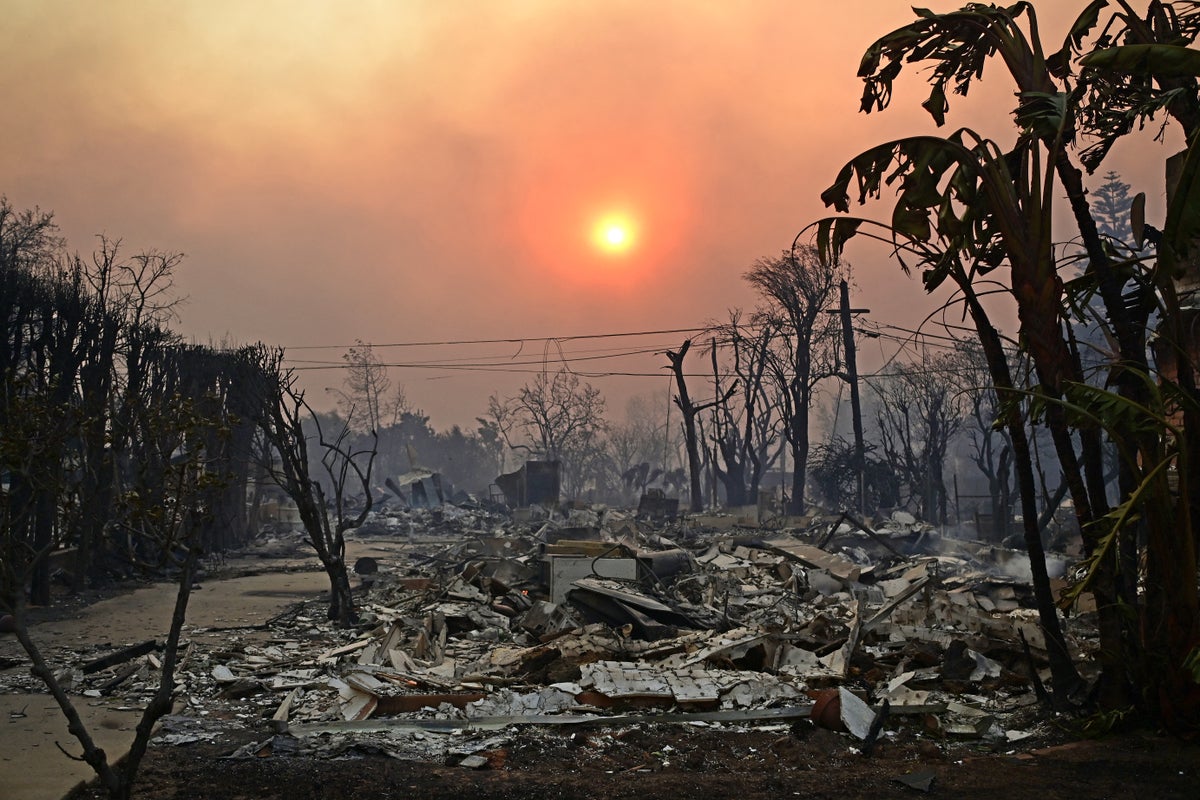
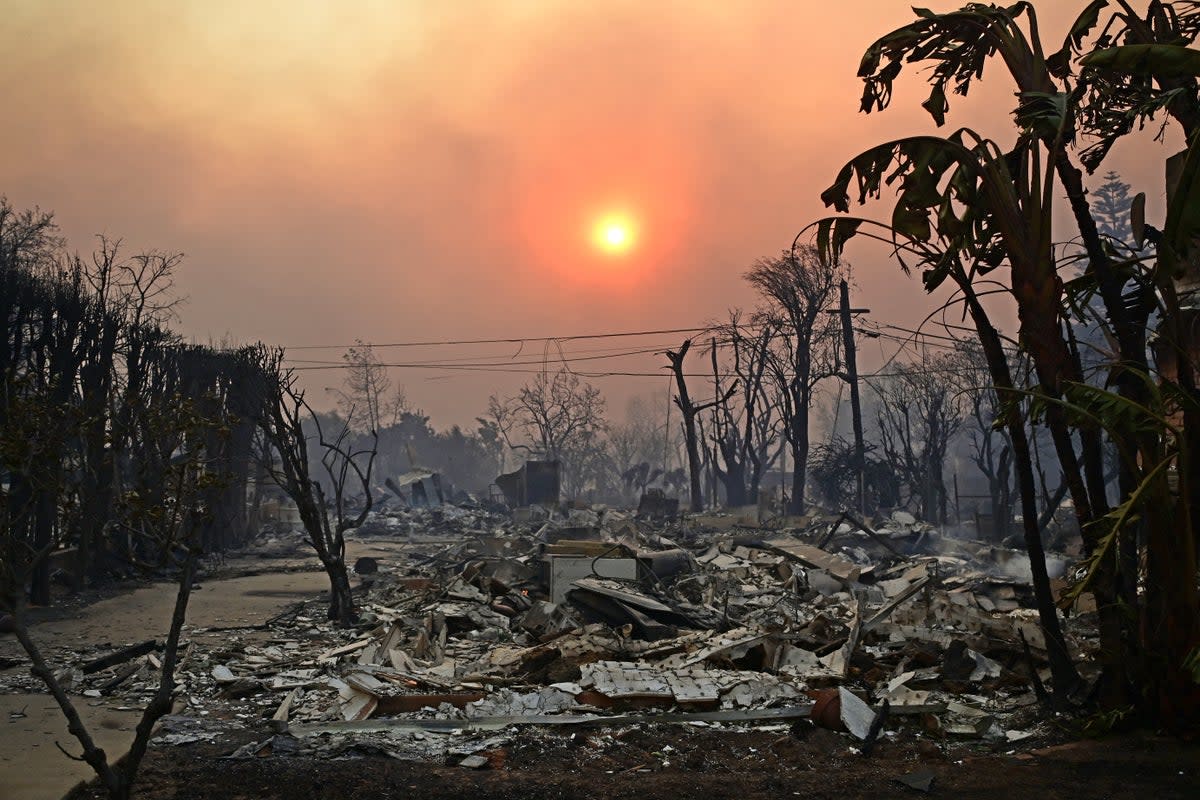
Tips for Booking During Natural Disasters: Proactive Steps Travelers Can Take
The Palisades wildfire case underscores the importance of being prepared for unforeseen events when traveling. Travelers should consider the following:
Understanding Your Rights as a Guest: Key Clauses to Review in Airbnb’s Policies
Travellers should carefully review Airbnb’s terms and conditions, paying particular attention to the Major Disruptive Events Policy. Understand the specific events covered, the conditions for receiving compensation, and the process for requesting assistance.
Communicate with Your Host: Essential Steps to Take When Disaster Strikes
If a disruptive event impacts your planned stay, communicate promptly with your host. Discuss your situation and explore possible solutions together. Airbnb’s platform facilitates communication, allowing for a constructive dialogue.
Conclusion
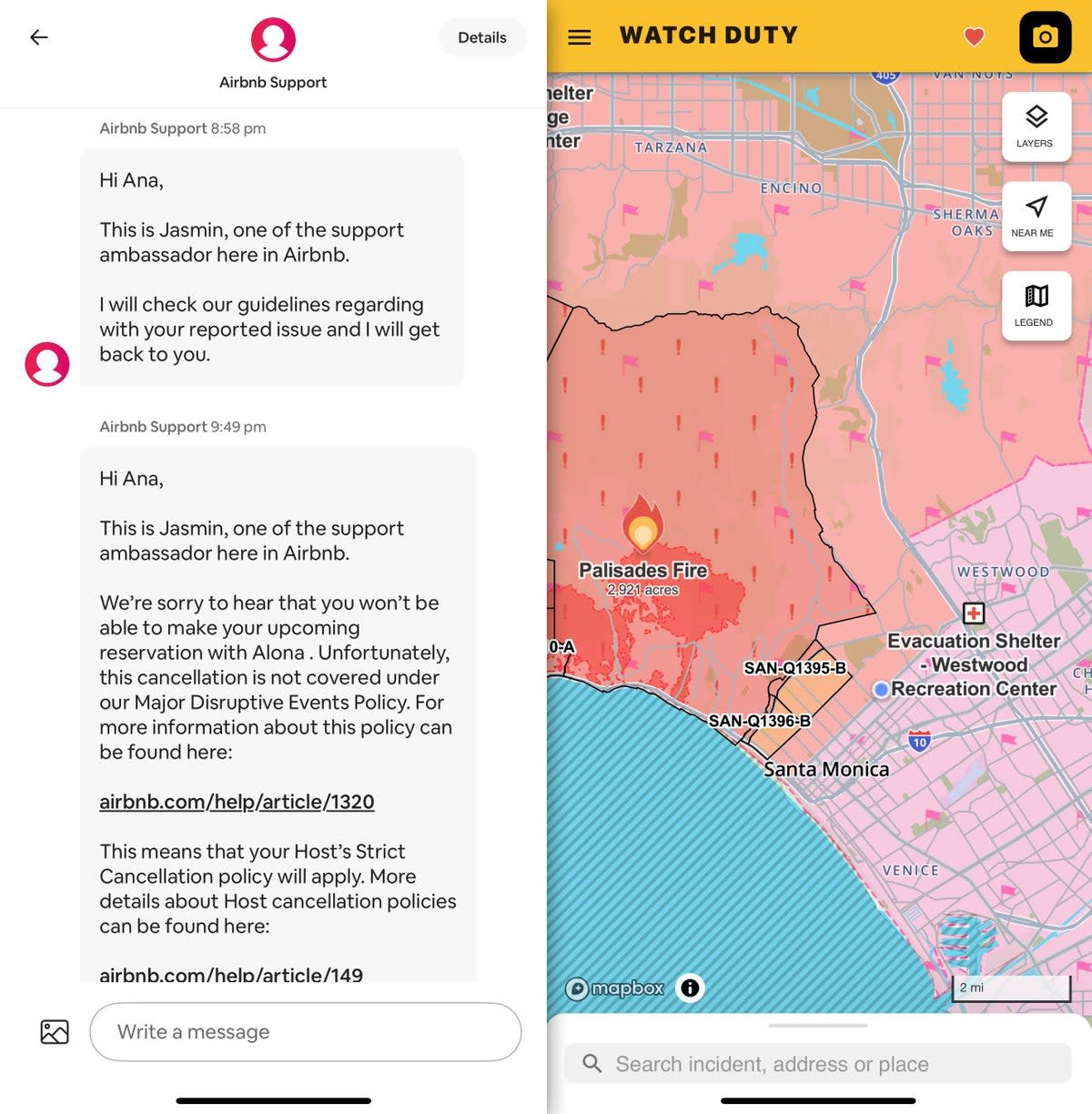
The story of the Airbnb guest whose complaint went viral after the Palisades fires offers a stark reminder of the vulnerabilities travelers face when relying on platforms like Airbnb. While the company ultimately provided a refund, the incident raises crucial questions about accountability, transparency, and the support offered to guests during unforeseen emergencies.
This isn’t just an isolated case; it reflects a growing need for stronger consumer protection measures within the sharing economy. As platforms like Airbnb continue to dominate the travel landscape, ensuring guest safety and security must be paramount. Moving forward, we need to see greater emphasis on crisis management protocols, clearer communication during emergencies, and a more proactive approach to mitigating risks for both guests and hosts. Ultimately, the trust that underpins the sharing economy hinges on the ability of these platforms to demonstrate genuine commitment to the well-being of their users.
This incident should serve as a catalyst for a broader conversation about responsible travel in the digital age. It’s a call to action for both Airbnb and its users to prioritize safety and build a more resilient, equitable, and trustworthy travel experience for all.

